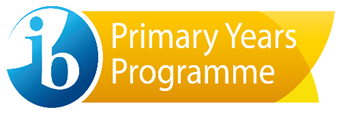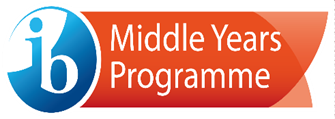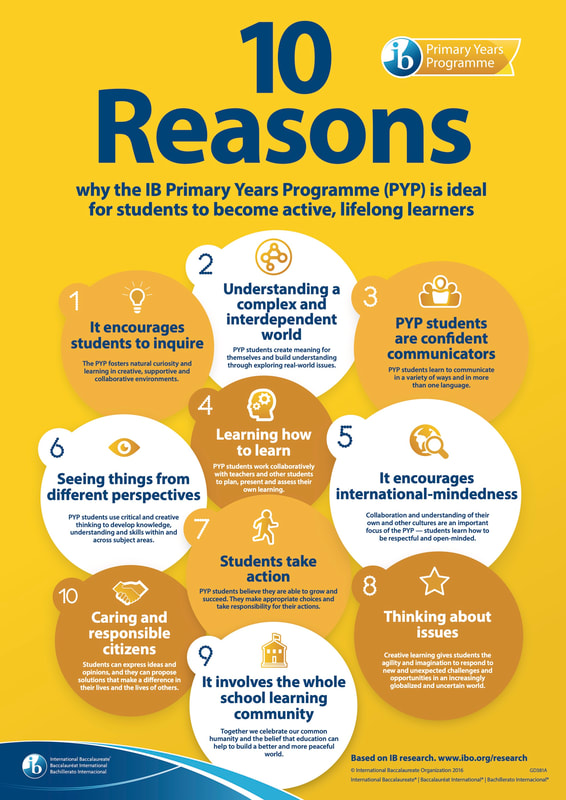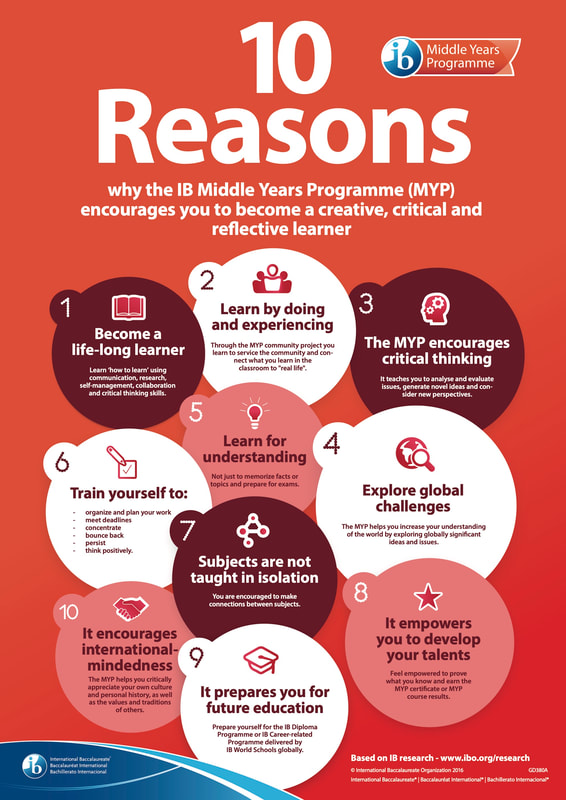As of August, 2023, Smyth's I. B. School Coordinators are Ms. Cynthia Peacock with the PYP (Primary Years Program) for grades Pre-K to 2nd, Ms. Debra Ellis with the PYP (Primary Years Program) for grades 3rd to 5th, and Mr. Jonathan Horowitz with the MYP (Middle Years Program) for grades 6th to 8th.
|
PYP
|
MYP
|
Mission
The International Baccalaureate® (IB) is more than its educational programmes and certificates. At our heart we are motivated by a mission to create a better world through education.
The International Baccalaureate® (IB) is more than its educational programmes and certificates. At our heart we are motivated by a mission to create a better world through education.
- We value our hard earned reputation for quality, for high standards and for pedagogical leadership. We achieve our goals by working with partners and by actively involving our stakeholders, particularly teachers.
- We promote intercultural understanding and respect, not as an alternative to a sense of cultural and national identity, but as an essential part of life in the 21st century.
Mission Statement:
- The International Baccalaureate® aims to develop inquiring, knowledgeable and caring young people who help to create a better and more peaceful world through intercultural understanding and respect.
- To this end the organization works with schools, governments and international organizations to develop challenging programmes of international education and rigorous assessment.
- These programmes encourage students across the world to become active, compassionate and lifelong learners who understand that other people, with their differences, can also be right.
The IB's history and philosophy
- Number of schools offering IB programs: As of September 2022, there were over 7,400 programs being offered worldwide, across over 5,500 schools in 160 countries involving 1,950,000.
- Download presentations on the history of the IB, and on its educational philosophy. There are also presentations about each IB programme.
- Click here to explore the presentations
The Smyth School Learner Creed
As a Smyth IB Scholar:
- I am a critical thinker who uses a variety of approaches to find solutions to problems.
- I respect the perspectives of others, even if they are different from my own.
- I am a leader who influences others in a positive and caring way.
- I make wise choices to support my learning and reflect on my actions.
- As a global citizen I use my education to improve the lives of others and my community.
IB Learner Attributes
Month | Attribute | Students strive to… |
September | Communicators | * Express feelings, thoughts, and ideas in words and through art, music, and drama * Share thoughts and feelings with others effectively in English and mother-tongue language(s) |
October | Inquirers | * Ask good questions * Not give up easily * Refer to other sources of information * Seek-out new knowledge independently |
November | Open-Minded | * Listen to other people’s thoughts and ideas * Accept more than one point of view * Be eager to experience new things |
December | Caring | * Be thoughtful of others * Show empathy towards other people and situations * Be helpful towards others |
January | Risk-Takers | * Be willing to make mistakes and try new things, both in-and-out of school * Try to do things in an unfamiliar way * Use good judgment and act on their own initiatives |
February | Principled | * Show honesty and integrity * Make good decisions * Accept responsibility for their actions and views * Stand up for what they know is right |
March | Balanced | * Learn about the importance of good health and a healthy lifestyle * Use time wisely and develop organizational skills * Show awareness of emotions and shows control of them * Demonstrate good hygiene, eating habits, and appear well rested |
April | Thinkers | * Link what they know with something new-transfer of knowledge * Build on other people’s ideas * Make connections between new concepts * Demonstrate original thinking and ideas |
May | Knowledgeable | * Learn about themselves and the world around them * Use knowledge to solve problems * Value knowledge * Express knowledge in a variety of ways |
June | Reflective | * Think about what they do and say * Think about what they are learning * Learn from past mistakes * Be aware of the effect of their actions and words on others * Accept the consequences for their behavior and actions |
Smyth I. B. World School Policies
1. Admission
2. Academic Honesty
3. Language
4. PYP Assessment
5. MYP Assessment
6. Inclusion
7. Special Education Needs
|
John M. Smyth Elementary I.B. World School
1059 W. 13th St., Chicago, IL 60608-1526 Located in University Village, 28th Ward Office: 773-534-7180; Fax: 773-534-7127 General Email: smythschool@cps.edu Site Managed by Weebly for CPS Site Last Updated: April 21, 2024 |
Dana M. Turner, Principal
Kiyana Grayer, Assistant Principal Dr. Pamela Smith-Nash, Counselor Jonathan Horowitz, MYP IB (6-8) Coord. Debra Ellis, PYP IB (3-5) Coord. Cynthia Peacock, PYP IB (PK-2) Coord. Michelle Crosby, Case Manager |




